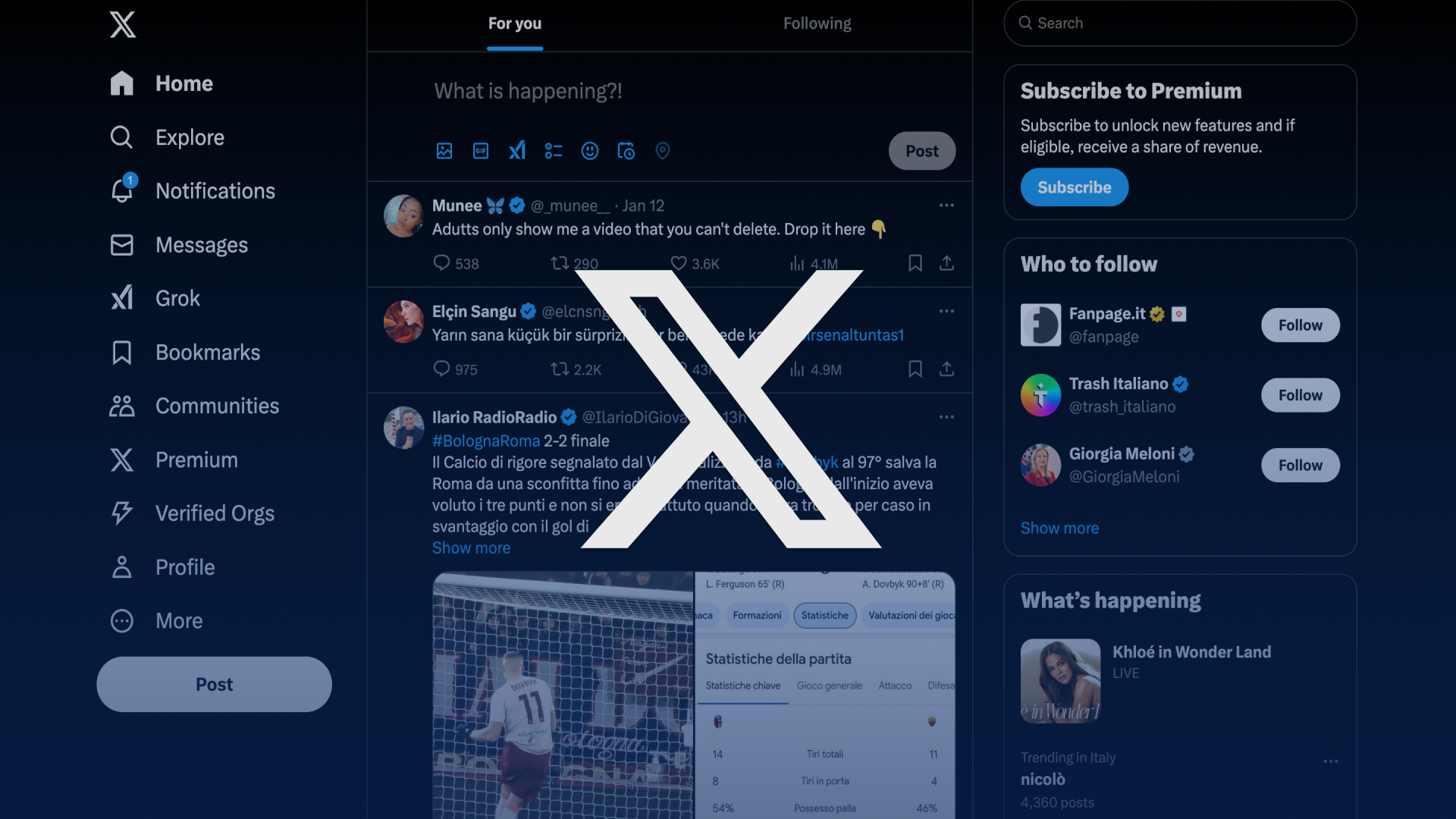In recent years, the growing confusion between parodistic content and authentic news has been one of the main challenges for social media platforms. Disinformation, especially through fake or satirical accounts, has fuelled doubts about the transparency and reliability of online content. In response to these issues, X, the social platform owned by Elon Musk (formerly known as Twitter), has announced the introduction of a major tagging system to help users distinguish between real and parody content.
The new labelling system on X
Platform X has launched an initiative to label parody accounts with a clear label, visible both on the profile and all posts of the account. The aim is to reduce the confusion between satire and misinformation, marking a clear distinction between humorous or critical content and those that instead pretend to be real. This labelling system, which is a step towards greater transparency, aims to protect users from misleading information, which is often unintentionally shared due to misunderstandings.
“We are implementing profile labels for parody accounts to clearly distinguish these types of accounts and their content on our platform. We designed these labels to increase transparency and ensure that users are not tricked into thinking that such accounts belong to the parodied entity,” X said in an official post.
How does the labelling system work?
To implement the parody label, X has adopted a self-labelling system. The parodic account owners will have to select this option in their profile settings, following a few simple steps:
- Open Settings and Privacy.
- Tap your account.
- Select Account information.
- Activate the option Parody, Comment and Fan Account.
This system is currently optional, but X has already announced that in the future, the parody label will become mandatory for all accounts creating satirical or parodic content. The introduction of this label is a direct response to cases of misinformation that have seen parodic content mistaken for authentic news, fueling misunderstandings between users and media.
Why is this initiative crucial for companies?
Companies, public authorities and professionals are the main recipients of this new feature. Brands, in particular, are increasingly vulnerable to content that mimics their identity or parodies them. This content, if not properly labelled, can easily confuse consumers, damaging their reputation and brand trust. The “parody” label allows users to recognize immediately the difference between a real business profile and one that merely mocks it.
With the growing risk of impersonation on social platforms, protecting online reputation becomes increasingly essential for businesses. This update helps prevent harm that could result from misunderstanding, allowing users to immediately understand whether content was created with the intent of parody or criticism. In addition, for companies, the introduction of a clear label that differentiates satire and reality also becomes an opportunity to respond to parodic content in a strategic way, with a language that enhances their identity without fueling conflicts.
What could it mean for the exodus on other platforms like Bluesky?
X’s decision to implement a parody account tagging system could be seen as an attempt to stop the exodus of users towards alternative platforms like Bluesky, which is making its way as a viable alternative to Musk’s platform. In fact, when X undertook significant changes to its Terms of Service, many users had considered switching to other networks that were more “free” or better managed in terms of privacy and authenticity.
The issue of social media transparency has become central to public debate, and the introduction of labels could be an attempt by X to restore greater trust among users. If this feature is successful, it could be the key to bringing back users who have left the platform, helping to keep users interested in the long term.
A step towards transparency in the fight against fake news
The growing spread of fake news is one of the main problems that social platforms have to face. In addition to the ability to quickly disseminate erroneous content, the viral nature of social media makes it difficult to limit the damage caused by misinformation. X, trying to meet this challenge, proposes itself as one of the platforms most attentive to online transparency, through the introduction of measures to distinguish between parody and reality. In this way, X hopes to create a more secure and reliable environment for users, reducing the risk of confusion and misunderstandings.
The labelling system can be seen as part of X’s wider initiative to combat misinformation. Through the introduction of these new tools, the platform aims to reduce the spread of misleading content and promote a more informed and informed experience for all.
Conclusion: a positive change, but is it enough?
Whether the parody label will be effective in reducing misinformation and misunderstandings, only time will tell. The introduction of this feature seems to be a positive step towards greater transparency on social networks, but it is not enough to solve all the problems related to content management. The question remains: will it be enough to stop the exodus of users to platforms like Bluesky, or will it be just a drop in the ocean of changes needed to restore trust in social media platforms? Only as the platform evolves and even more stringent measures are implemented will this question be answered.
For now, companies and users must prepare themselves for an ever-changing digital environment where recognising satire from reality becomes a fundamental skill to navigate safely.






